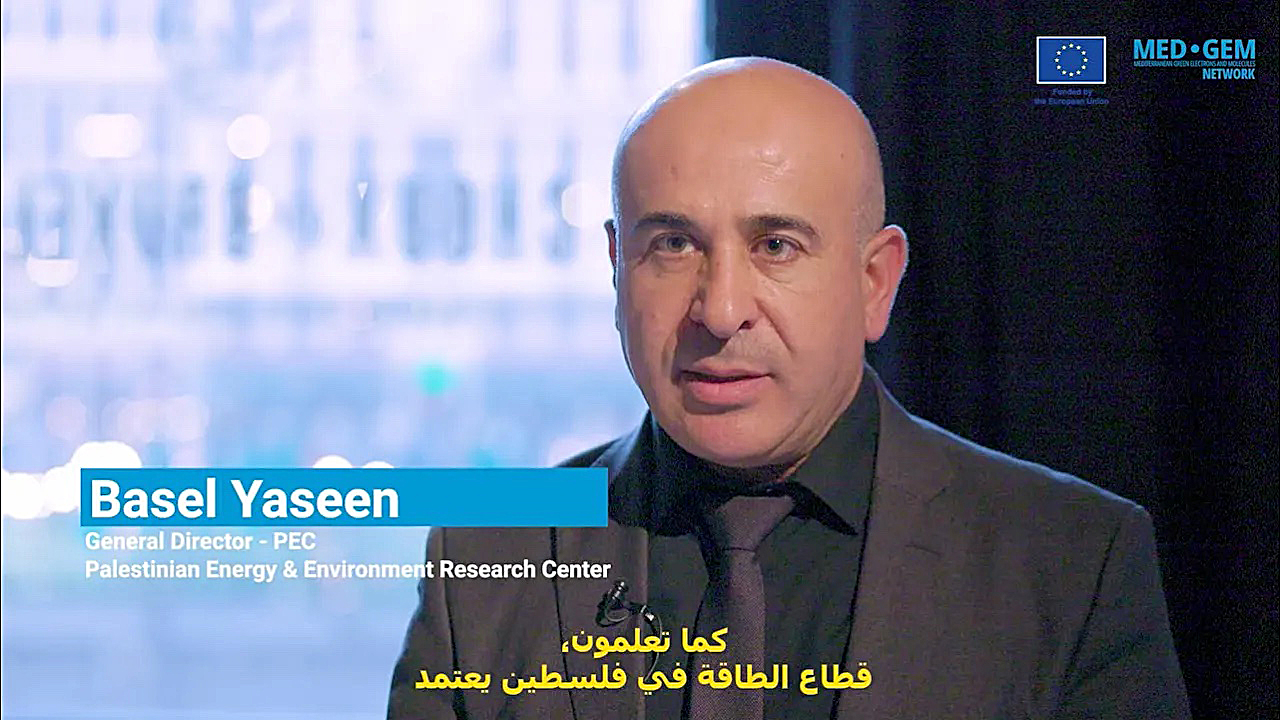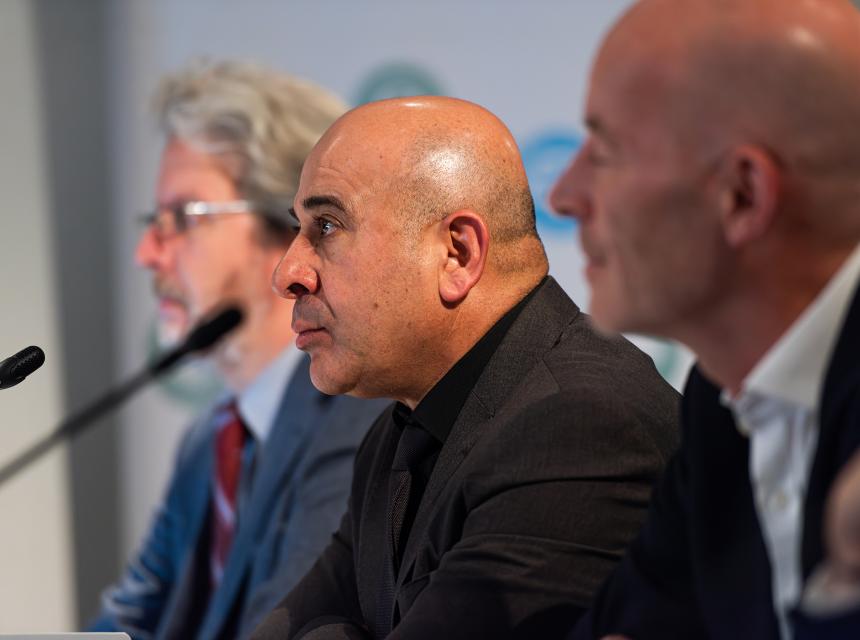Empowering Palestine's energy future: Basel Yaseen unveils insights & challenges in exclusive MED-GEM Network Interview
In an interview with the MED-GEM Network program, Basel Yaseen, General director of the Renewable Energy (RE) and Energy Efficiency (EE) and Climat Change at the Palestinian Energy and Natural Resources Authority, National Focal point for MED-GEM Network in Palestine and also focal point in the RE and EE platform at the UfM, addresses various topics related to the energy sector in Palestine. The interview explores the challenges and opportunities of green energy, including renewable hydrogen production, and delves into the policies implemented to promote renewable energy in the region. Yaseen also discusses encountered obstacles, such as political constraints and limited land availability, emphasizing the significance of international support to rebuild and restore renewable energy systems following complex political situations.

Can you introduce the energy sector in Palestine?
The energy sector in Palestine, depends on different resources. We don't have a local generation. So we have to get our electrical energy from other countries, such as Israel. More than 87% of our electricity comes from the Israeli side, with a smaller portion from neighboring countries Jordan and Egypt. So that's why I think we have to look at our energy security and energy independence. So and looking at the renewable energy sources is that it's a very promising source.
And in the past ten years, we are looking that with the renewable energy to cover some basic needs for people in remote areas. But now it become more and promising issue where people are asking to invest in this sector. We have a lot of investments, a lot of connections mechanism where for the people in Palestine can connect and get benefits in order to cover their energy bills, or even to sell their electricity, electric energy to the distributors and get some benefits.
Also, a lot of companies have been created in the market, a lot of job creations and job opportunities where people own companies as installers or sellers of their modules or inverters or other components of the PV systems. Also, a lot of engineers have opportunities to be part of those companies where they are technical engineers or managers, specialized in energy and renewable energy sources.
What are the key challenges and opportunities for green energy and renewable hydrogen production?
We have reached a mature stage in renewable energy, primarily in solar technology. Challenges arise when considering alternative sources due to numerous obstacles. Solar technology, characterized by its simplicity in assembly and energy production, stands out. However, other sources like wind or biogas face considerable technical and political hurdles, particularly in the case of wind energy.
Over the past decade, efforts have been made to acquire small-capacity wind turbines, ranging from 750 kilowatts to one megawatt. Unfortunately, success has been hindered by Israeli obstacles related to importation, transportation, and political security concerns. Height restrictions, prohibiting wind turbines from exceeding 50 meters, further compound these challenges.
Another significant challenge pertains to the land required for PV systems. In Palestine, particularly in the West Bank, Gaza, and east of Jerusalem, available land is limited and expensive. According to the Oslo classification, a substantial portion of the land (around 62%), primarily in Area C under Israeli control, cannot be utilized. Despite ample empty spaces in Area C, restrictions prevent their use. A small fraction of this area could sufficiently meet all of Palestine's renewable energy needs, but unfortunately, utilization is not permitted.
The third obstacle involves the unique structure of the energy sector in our region. The presence of numerous distribution companies, each with its own concession area and lacking interconnections, weakens the distribution grid's capacity. This limitation hinders the effective handling of larger energy capacities from renewable sources. Upgrading the grid, enhancing its capacity to absorb more energy, and implementing storage solutions are crucial. Additionally, securing access to Area C, currently controlled by Israel and utilized for their own PV and renewable energy projects, is essential. Recent developments indicate plans for a significant hydrogen project to be installed in Area C from the Israeli side.
What are the different policies implemented now in Palestine?
We started in 2010 when we embarked on a modest initiative involving PV Systems, Rooftops, and the residential sector, proving highly successful. The public demonstrated a keen interest in investing and adopting renewable energy technology. However, due to an economic crisis in 2014, the initiative was temporarily halted, only to resume in 2017, and it continues today. This promising initiative allows each resident to install up to five kilowatts on their rooftop, enabling them to utilize and sell excess energy to distribution companies through a feed-in tariff mechanism.
Also, there is an initiative for net metering in the industrial sector, resulting in over 3000 PV systems already implemented under this mechanism, which is functioning effectively. Additionally, the direct offers avenue permits investors to approach the government or the clean energy authority to invest in larger-scale PV systems. With established laws and infrastructure in place, the current large-scale PV systems can potentially be repurposed for hydrogen production and storage techniques, aligning with the approach of other countries utilizing hydrogen resources for local purposes, not for large-scale exportation.
We are looking to use the hydrogen locally and to have some pilot projects. Addressing the need to determine requirements for hydrogen and the necessary infrastructure, progress is essential to move forward in utilizing this resource.
Actually, in terms of strategies and targets, we have established plans for 2030 and 2040. Our active involvement in the Nationally Determined Contributions (NDC) reflects our commitment to national and international plans addressing climate change. We are following our steps to achieve these targets. So we need the support in that. Despite past support, especially in Gaza Strip, recent political situations have led to the destruction of most of the systems in that region.

